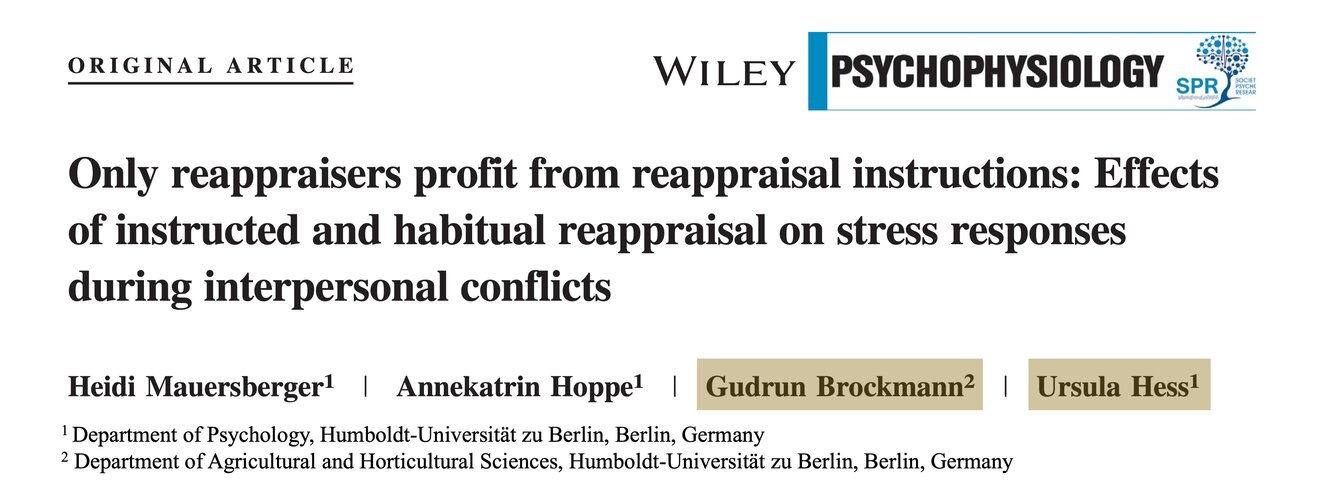Interdisciplinary publications from 2018
Abstract
Conflicts are an undesirable yet common aspect of daily interactions with wide-ranging negative consequences. The present research aimed to examine the buffering effect of experimentally instructed reappraisal on self-reported, physiological and behavioral stress indices during interpersonal conflicts, taking into account habitual emotion regulation strategies. For this, 145 participants experienced a standardized laboratory conflict with the instruction to either reappraise (n = 48), to suppress (n = 50), or with no instruction (n = 47) while cardiovascular and neuroendocrine measures were taken. Participants were allowed to eat sweet and salty snacks during the conflict situation. Prior to as well as after the conflict, participants reported on their subjective stress level. Reappraisal instructions were only effective for high habitual reappraisers who exhibited lower cardiovascular and cortisol reactivity and demonstrated fewer snack-eating behaviors under reappraisal instructions than under suppression or no instructions. The opposite pattern emerged for low habitual reappraisers. Neither experimentally instructed nor habitual reappraisal by itself reduced the negative effects of conflicts. Our findings complement the literature on the diverging effects of instructed reappraisal in tense social interactions.
